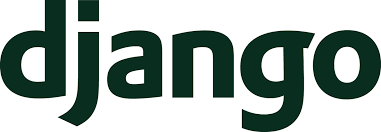When building anything on the web, including things as basic as a website or as complicated as a bigger web application, you need to decide how you’re going to build it. Part of the “how” of building anything is deciding what framework or language you’re going to use. This is where the Django Framework comes in.
Here at Red Crow Digital, we love building web applications in Django. There are a lot of choices out there in terms of frameworks and languages, but we find ourselves always coming back to Django for the majority of our projects.
What Exactly Is Django?
Django is a web framework based on the Python programming language. There are a lot of frameworks out there including Laravel (based on PHP) and React (based on JavaScript). Ultimately all these frameworks do the same thing: help build awesome web applications including websites, apps, and software.
When building these awesome web applications, you can start from scratch, or you can use a set of tools to make development faster and easier. That set of tools is a framework. Taking a real world example, if you’re a carpenter do you make a brand new saw and hammer for every project or do you use existing tools to get the job done? That’s where a framework helps.

The Strengths of Django Over Other Frameworks
If you have an upcoming project, you’re probably considering that “how” bit we were talking about. You know “what” you want, now you’re researching the steps to actually create it. Maybe you think a Python based framework is the way to go so you’re weighing up Django versus Flask. Maybe you’re not sure about the language and you’re trying to determine whether to go with something in Python or something in PHP or JavaScript. There’s a lot to choose from.
That being said, there are a lot of good reasons to use Django for your next project.
Speed of Development
Ultimately Django is built for rapid development, meaning a project can be created a lot faster, which ultimately saves money. Going back to our carpenter example, if the carpenter has the plans to build a chair, they can modify those plans slightly to make a variety of different chairs rather than having to make a new plan each time.
Scalability
Django can easily scale from working for a small application up to very large applications. This means that while it’s suitable for a variety of projects, it’s also suitable for projects that will grow with time.
Security
Security is an extremely important aspect in any web based project, and Django handles security exceptionally well. Django has a myriad of inbuilt security features. Yes, all frameworks have built in security features, but not as much as Django. Part of the reason for this is Django’s massive community support; this results in quicker and more reliable security releases when any vulnerability is found.
Flexibility
Although Django is considered relatively opinionated about how things should be done, it also has a lot of flexibility to change things when needed. “Opinionated” here means that the framework suggests that a developer do things a certain way. While this may sound like a constraint, it actually helps to ensure that code is consistent across projects and different developers. Although Django is opinionated about how things should be done, customisation is easy as the framework is so well structured. This makes for a very flexible and powerful combination.
Technical Aspects
We won’t go too far into some of the technical aspects that make Django a great choice for development; ultimately this article is for lay people researching their options rather than experts. That being said, the main technical advantage of Django (and Python in general) is the “Don’t Repeat Yourself” style of coding and ability to write reusable code. There are aspects of this elsewhere, but it’s very strong in Django.
Should I Use Django for My Next Project?
Ultimately, that’s up to you and your project. Django can be resource heavy when compared to other frameworks. This doesn’t matter for larger projects as its overall speed and ease of development make it a good choice in those circumstances, but for smaller projects that will be using less powerful hosting, Django may not be the best choice. Basically speaking, Django is the standout framework for bigger projects but may be overly complex for a simple one page website.
That being said, like PHP and JavaScript based frameworks, Django has great content management systems, including our favourite, Wagtail. But that’s all for another article.
So, what framework should your project use? Talk to us about it. We love Django, but we’re also here to make sure your next project is a success. This means we’re happy to provide the advice that will make sure you reach that success.
 info@redcrowdigital.com.au
info@redcrowdigital.com.au 1300 66 99 62
1300 66 99 62